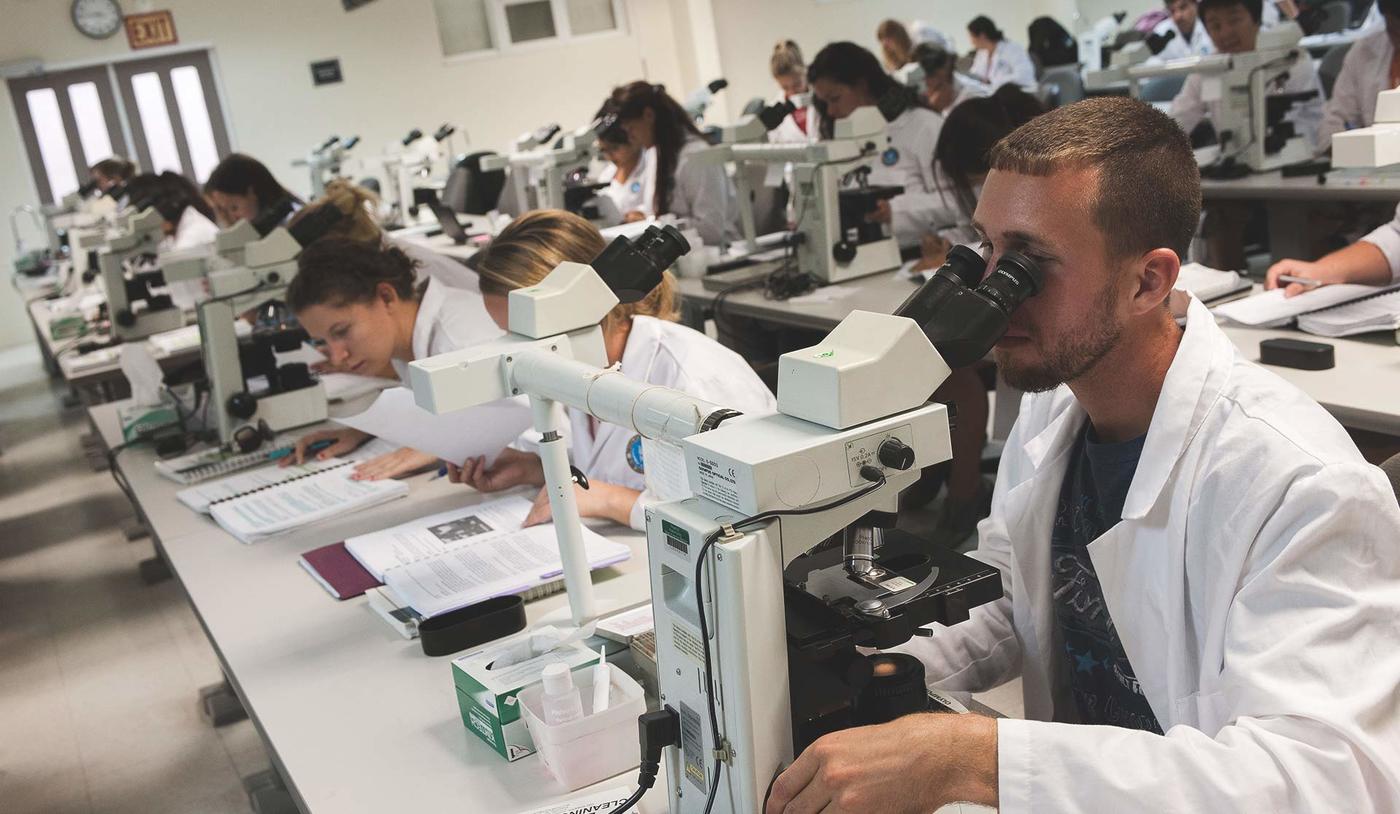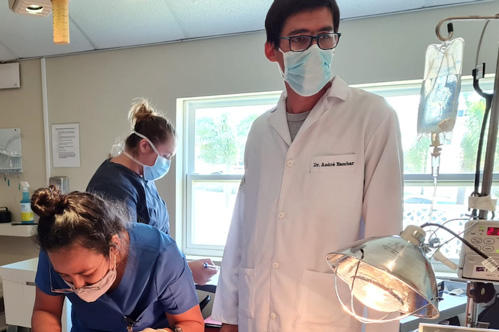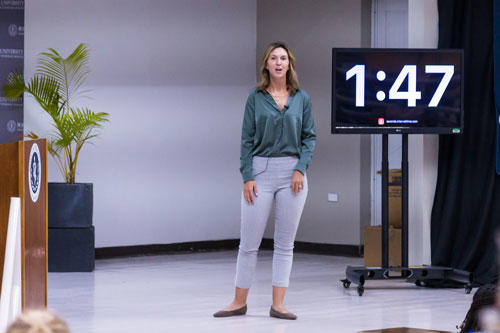Ross Vet Ph.D. candidate, Dr. Matthew Valentine received a Bachelor of Veterinary Medicine and Surgery from Glasgow University in 1997. Years later, he undertook an internship in veterinary pathology at Ross University School of Veterinary Medicine (Ross Vet) which included an MSc by Research program and transitioned into the Ph.D. by Research program.
When Dr. Valentine arrived on the island, the Caribbean region was in the middle of a Chikungunya outbreak followed by Zika in 2016. Both diseases and Dengue fever are transmitted by the same mosquitoes. Dr. Valentine was recruited to join a research project that was funded by the National Institutes of Health (NIH) to investigate their epidemiology.
Over 17 months, he led a team of student and community volunteers and collected mosquitoes from all different ecosystems on St. Kitts to see if they could find when and where they were most abundant. The team tested the mosquitoes like Aedes aegypti which are known to transmit viral diseases for Dengue, Chikungunya, and Zika viruses (arboviruses), and looked for new species on the island that might feed on the monkeys that inhabit St. Kitts.
Meticulous methods
With the support of other researchers at the University, Dr. Valentine conducted an island-wide mosquito survey and used mosquito traps baited with carbon dioxide as an attractant.
“Ross Vet community members and I set these traps and collected mosquitoes every month between September 2017 and March 2019. We identified all the mosquitoes using standard biological keys and then we developed a model to help predict how the populations of mosquitoes might change in different seasons and land use. We used molecular techniques like polymerase chain reaction (PCR) to try and detect the Dengue, Chikungunya, and Zika viruses in the mosquitoes.”
Findings unique to the island mosquitos
While conducting the research, the team found the black salt marsh mosquito, Aedes taeniorhynchus, which is the most common mosquito species on the island followed by the Southern house mosquito, Culex quinqefasciatus.
The results?
“To summarize, there are more mosquitoes in the wet season, mainly driven by species that live in the mangroves. This is because they have more breeding sites in the wet season. Mosquitoes that live in urban areas are with us all year round but do increase in the wet season too. We didn't find any mosquitoes that had bitten a monkey and we did not detect Dengue, Chikungunya, or Zika viruses in the mosquitoes we caught during the study.
The project has taken over five years, so we have had a lot of help. The study was designed by Ross Vet Professor Dr. Patrick Kelly with sub-awardees, Dr. Courtney Murdock from the University of Georgia and the University of Cornell and Dr. Dana Vanlandingham at Kansas State University. I was also fortunate to receive help with the identification and curation of entomological specimens from David Pecor at the Smithsonian’s National Museum of Natural History and the Walter Reed Biosystematics Unit (WRBU), Washington DC and Erica McAlister at the Natural History Museum, London.
The St. Kitts and Nevis government department of environmental health specifically, Mr. Jermaine Lake and his team of Vector Control Officers have also been integral to the project and we could not have pursued the research without their support.”
Expanded research underway
Dr. Valentine is investigating the potential of other pathogens found in the mosquitoes on the island and is currently applying for a grant around the peculiar distribution of Aedes aegypti on St. Kitts. He is also working on developing a pictorial guide of mosquitoes on the island and will start working as an Assistant Professor of Pathology at the University.
Dr. Matthew Valentine is from Manchester in the UK where he worked as a Veterinary Surgeon for 17 years mainly in companion animal practice but also mixed practice for 3-4 years. He also worked for the UK government advising in exotic diseases (foreign animal diseases). A professor at the Royal Veterinary College, London recommended the internship and MSc program at RUSVM and he joined RUSVM with a strong desire to develop an alternative career path and continue his professional development outside of clinical practice
Research reported in this publication was supported by the National Institute of Allergy and Infectious Diseases of the National Institutes of Health under Award Number R21AI128407. The content is solely the responsibility of the authors and does not necessarily represent the official views of the National Institutes of Health.







